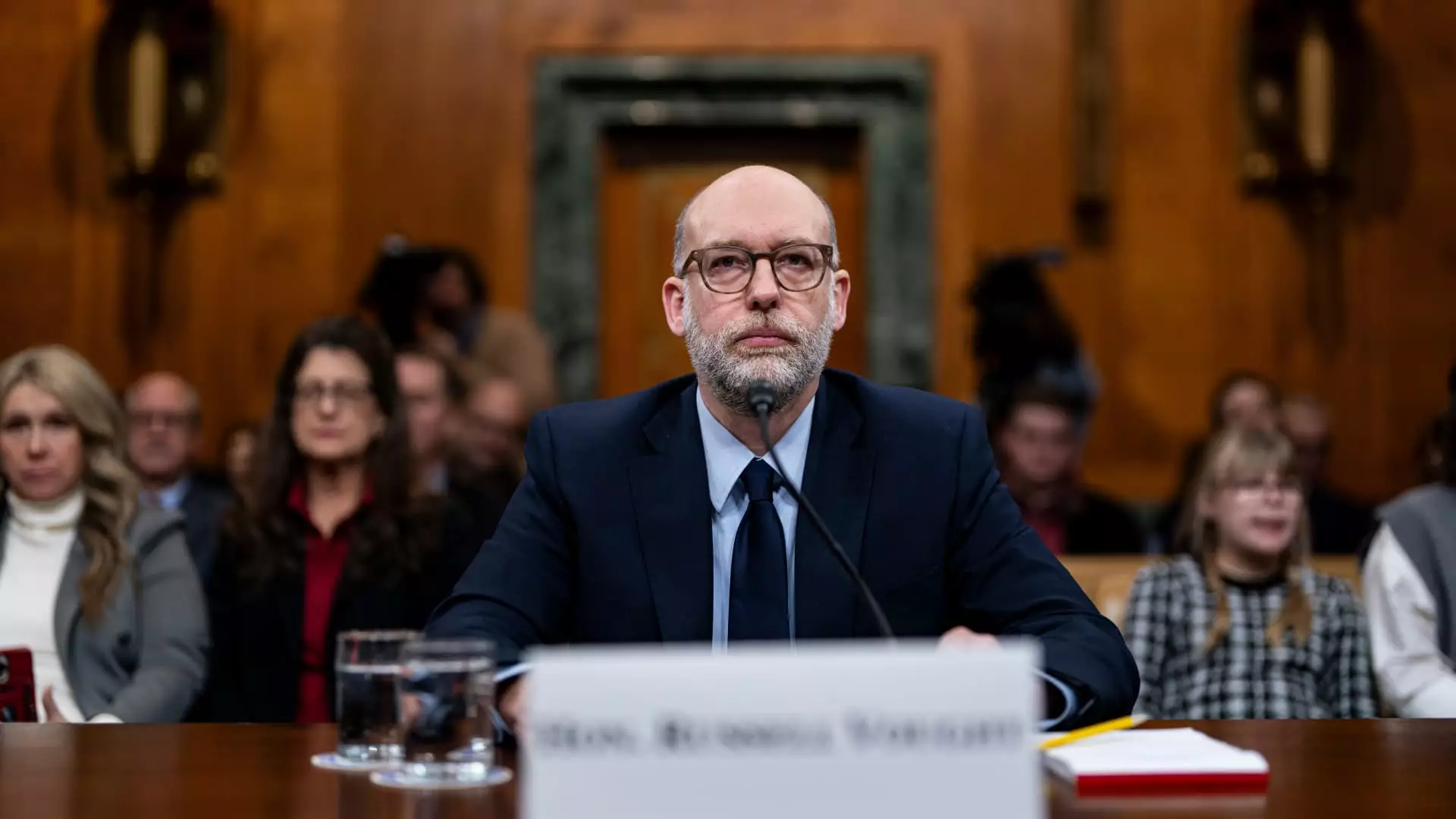The recent confirmation of Russell Vought as the U.S. budget director has prompted substantial discussions regarding the future of federal funding and budgetary practices. Confirmed by a narrow 53-47 vote in a Republican-controlled Senate, Vought’s appointment is a reflection of an increasing alignment with hardline conservative ideologies, particularly those championed by former President Donald Trump. Vought, who previously served as the acting budget director during Trump’s first term, is poised to oversee government funding policies that could significantly reshape longstanding practices.
Vought has provoked considerable concern across party lines due to his critical view of the 1974 Congressional Budget and Impoundment Control Act. His assertion that the law is unconstitutional raises alarms regarding presidential authority over approved funding. This contention undermines the legislative branch’s power to regulate budgetary allocations, a foundational aspect of American governance. While his confirmation was championed by Republican senators who advocate for reduced federal overspending, the implications of Vought’s beliefs could lead to a power imbalance, enhancing executive control over budgetary decisions at the expense of congressional oversight.
The recent actions taken by the White House Budget Office under Vought’s guidance, including a controversial freeze on billions in federal grants, further elevate these fears. This maneuvering, aimed at aligning government spending with Trump’s political priorities—such as the cessation of diversity and inclusion programs—could threaten critical public services reliant on these funds. Though the memo was rescinded following legal challenges, the episode highlights Vought’s potential to enforce significant changes in how federal funds are managed, leading to uncertainty and inconsistency in federal assistance programs.
Opposition from Democratic leaders has been fervent. Critically, Senate Minority Leader Chuck Schumer has directly linked Vought’s involvement in the hard-right Project 2025 initiative to detrimental actions in various federal agencies. This initiative aims to reshape government policy and operations according to conservative principles, which in practical terms could jeopardize the functionality of agencies like USAID and undermine judicial integrity through personnel cuts. The Democrats’ rhetoric emphasizes a commitment to protecting public services, suggesting that Vought’s approach may endanger vital national interests.
Conversely, Republicans regard Vought’s experience and steadfast commitment to reducing government waste as a boon for fiscal responsibility. Senate Majority Leader John Thune articulated a vision for cutting unnecessary expenditures, presenting Vought as a potential leader in this endeavor. However, this perspective raises questions about the balance between fiscal conservatism and the potential erosion of social programs that many citizens rely upon.
As Russell Vought embarks on his role as budget director, the implications of his tenure will resonate well beyond the confines of fiscal management. His hardline conservative stance, coupled with the shifts in funding control, could lead to transformative changes in federal governance—changes that must be monitored closely given the potential impact on American citizens. The evolving landscape of U.S. federal budgeting stands at a pivotal crossroads, necessitating an ongoing dialogue about the principles that guide government spending and the balance of power between the legislative and executive branches.


Leave a Reply